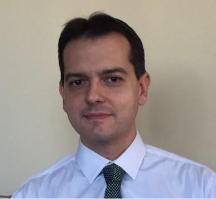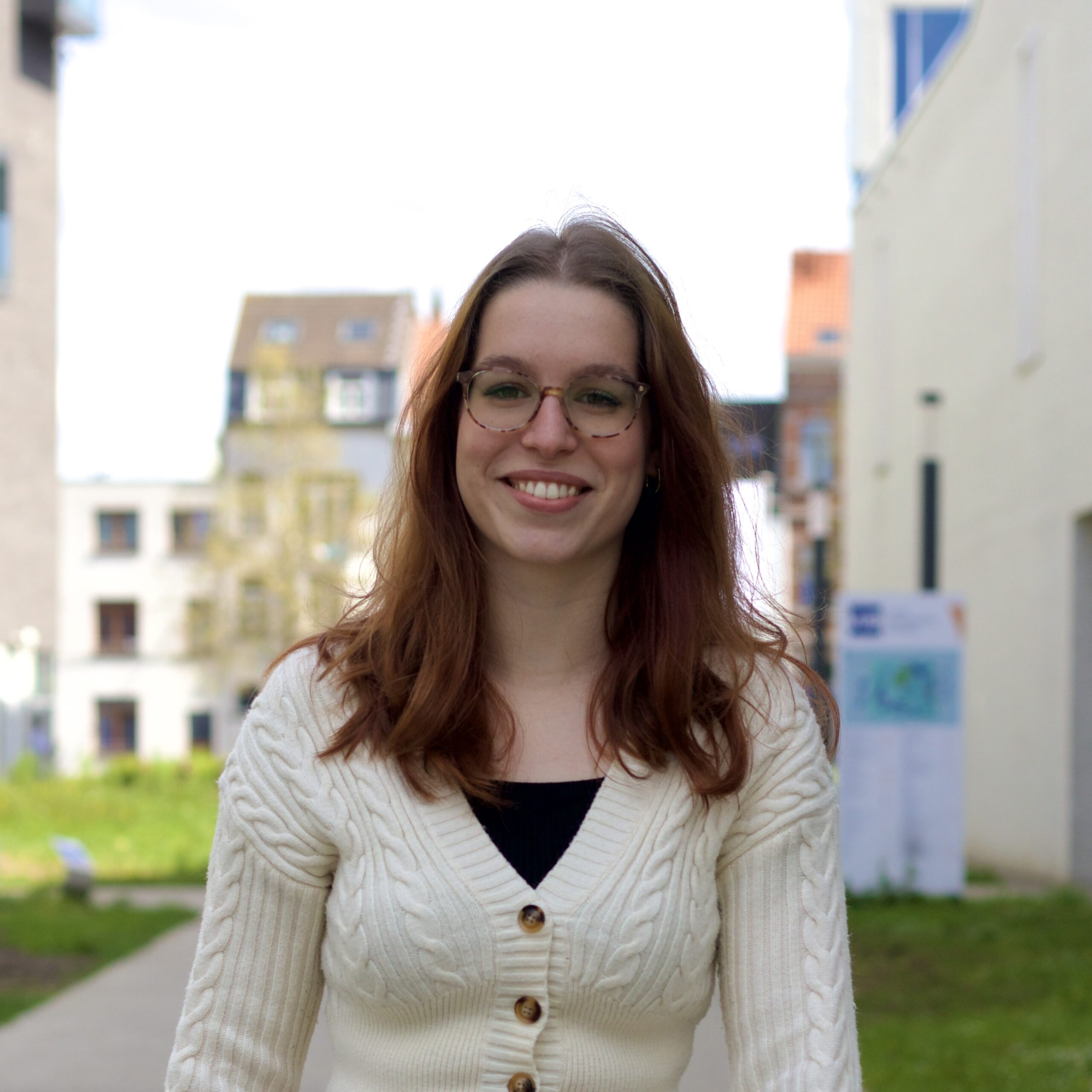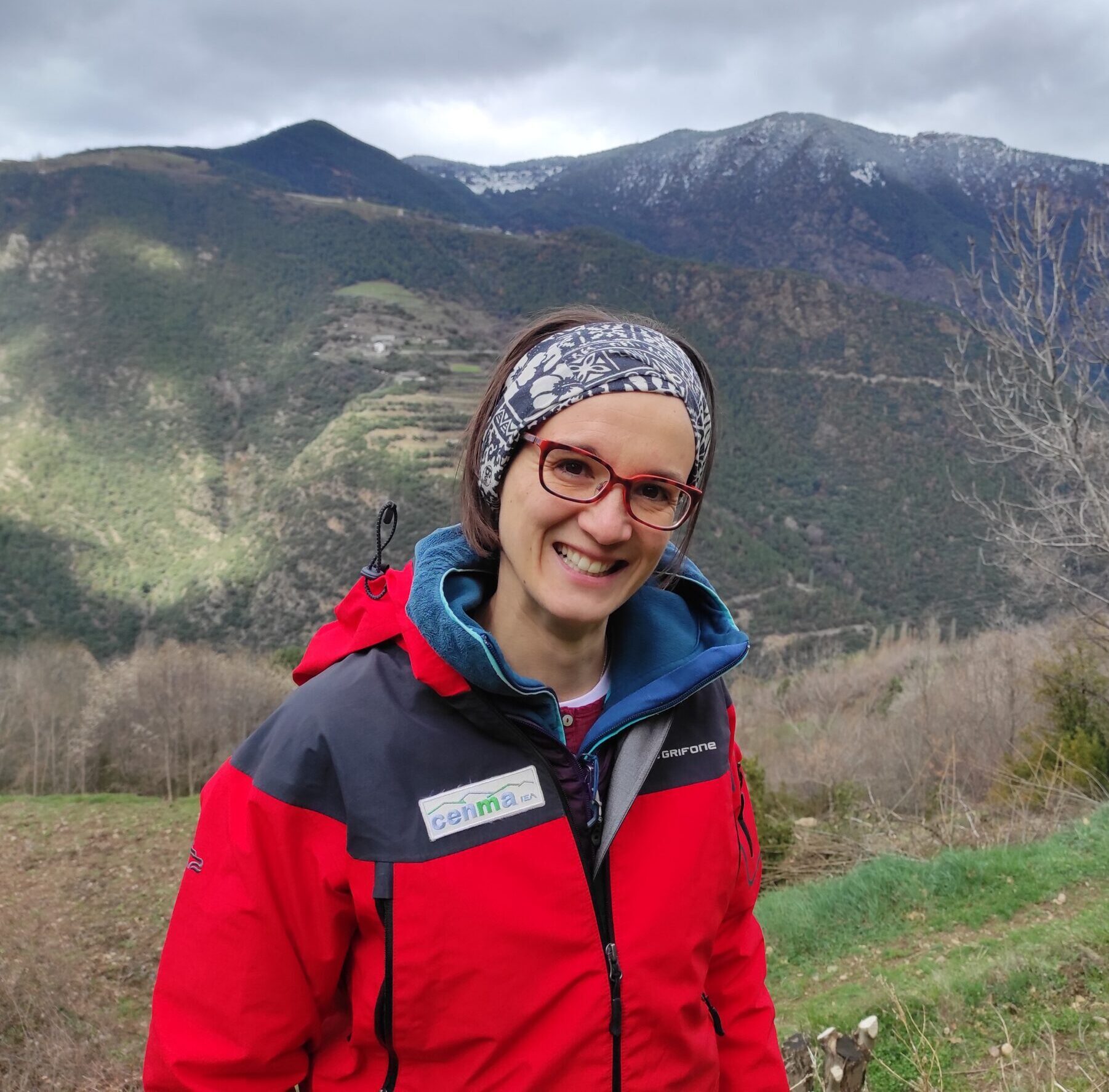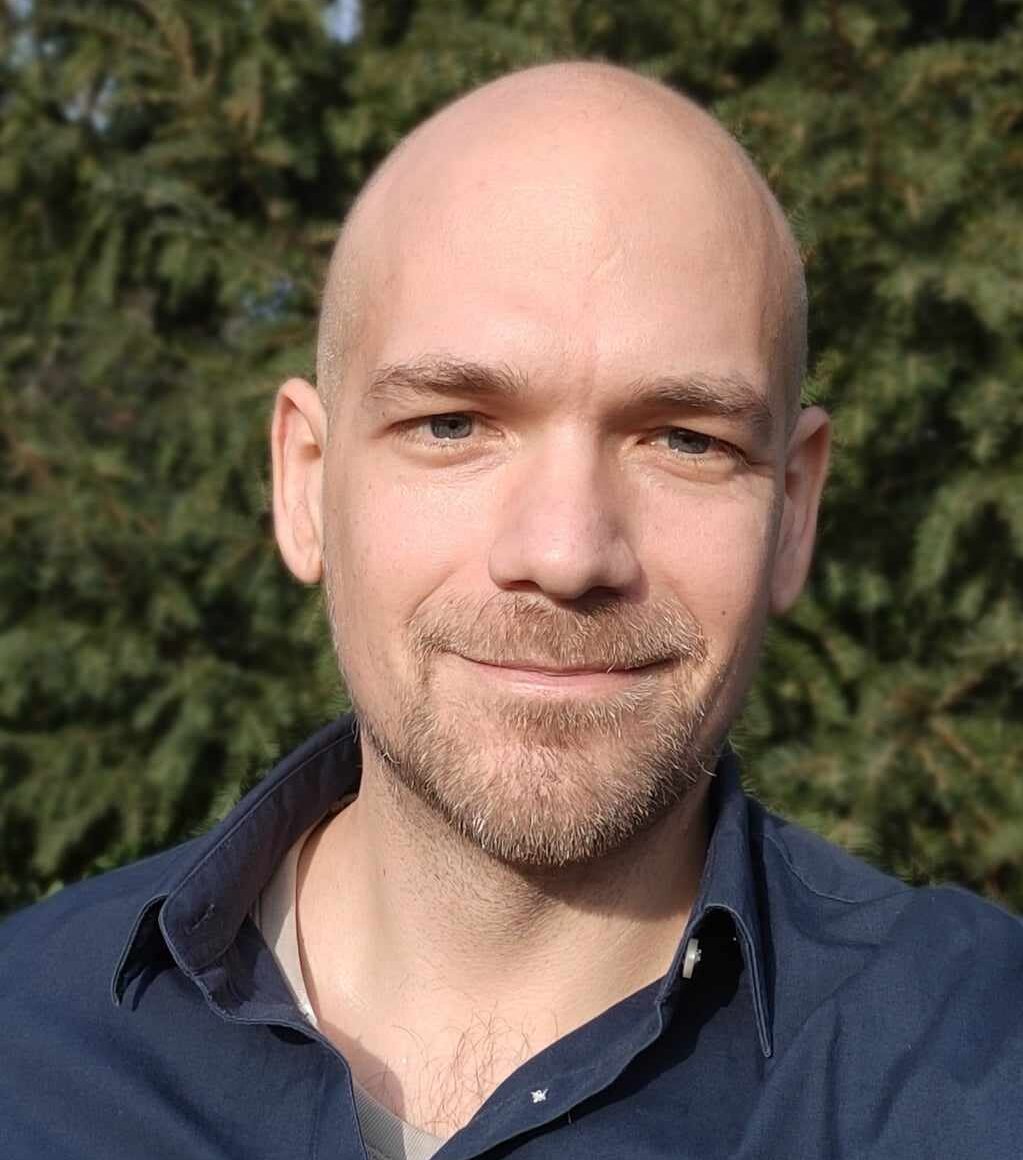Time
11.00 – 12.30
Room
Aria
Chaired by
Dimitri Schuurman
Type of Session
Research Session
Description
Following the evaluation procedure the OLLD evaluation committee has accepted the research papers. All papers reflect on the theme of the conference “LIVING LABS FOR REGENERATIVE FUTURES: Connecting Local and Global Innovation Ecosystems ” and have been classified according to its sub-tracks. These are: TRACK 1: Living Labs for Grand Societal Challenges; TRACK 2: Living Labs for Policies, Governance, collaboration and innovation ecosystems; TRACK 3: LLs for Inclusive Soci(et)al Engagement; TRACK 4: Living Labs for Business and Emerging Technology; TRACK 5: Living Labs Operation, Methods, Tools, and Impact.
Papers selected by the Evaluation Committee
- Public libraries as Living Labs: Co-creation and public value to address grand societal challenges
- Co-creating rural digital policy across borders: A Living Lab-based double daimond approach
- Participation that matters: Expert insights on designing inclusive Living Labs
- Botanical villages, an initiative in favor of local flora
- A harmonized monitoring theoretical framework for pollination restoration Living Labs in Europe
- Co-create forest management and policy solutions: Living Labs in the Safe-net project
Public libraries as Living Labs: Co-creation and public value to address grand societal challenges
Abstract: Public libraries are undergoing a significant transformation from traditional repositories of knowledge into dynamic living labs that foster co-creation, innovation, and community engagement. This article examines the living lab paradigm in public libraries, focusing on how participatory design, multi-stakeholder collaboration, and flexible, hybrid spaces contribute to the creation of public value. Drawing on in-depth case studies of the Library Living Lab (L3) and Bibliolab network in Catalonia, as well as Medialab-Tabakalera in San Sebastián, the article analyzes the drivers of public value, such as early and active user involvement in co-creation processes, spatial design that enables serendipitous interaction, the development of staff skills to engage diverse users, creative metrics to capture intangible outcomes, and robust institutional support. It also addresses shared lessons on how public value is manifested in public libraries, including community building, and the promotion of inclusion, social cohesion and diversity. The findings demonstrate that libraries as living labs can serve as innovation intermediaries, bridging sectors and empowering diverse communities to address grand societal challenges, with co-creation at the center of their mission.
Key words: public libraries, living labs, co-creation, public value, community engagement, social challenges
David Gago
Professor of Economics in the Department of Economic Analysis at the National University of Distance Education (UNED)

David Gago
Professor of Economics in the Department of Economic Analysis at the National University of Distance Education (UNED)David Gago, PhD is a tenure-track Professor of Economics in the Department of Economic Analysis at the National University of Distance Education (UNED), Spain. His research focuses on the economics of innovation and innovation policies, service innovation, co-creation, value creation, and living labs—particularly within the public sector. He brings extensive experience across multiple sectors, including the public Sector (as strategic advisor to the Office of the Secretary of State for Telecommunications and Information Society, Government of Spain (2008–2011), multilateral institutions (as consultant at The World Bank, 2015–2016), or the private sector (as strategic and innovation consultant in different firms). David Gago has a strong research record in several EU funded projects, including Co-VAL (2018–2021) and LibrarIN (2022–2025). In these projects, he analyzed the role of living labs as drivers of co-creation and co-innovation in the public sector and European libraries. Additionally, he serves as a reviewer for specialized academic journals such as The Service Industries Journal or Public Money & Management.
Co-creating rural digital policy across borders: A Living Lab-based double daimond approach
Abstract: This research-in-progress applies the Double Diamond design model and Living Lab (LL) methodology to co-create rural digital policy in the cross-border regions of Muodoslompolo (Sweden) and Muonio (Finland). Drawing on participatory speculative and critical design methods, such as cultural probes, design fiction, and scenario-based workshops, the project engages diverse stakeholders through the PentaHelix model. Early activities, including interdisciplinary workshops, interviews, and community engagement, have informed a draft policy prototype and a prioritization matrix aligned with key Sustainable Development Goals (SDGs). The study contributes both practically, by developing a context-sensitive digital policy and action plan, and academically, by advancing LL practices in rural, cross-border settings. The proposed approach offers a replicable model for inclusive and participatory policymaking in underrepresented regions.
Key words: Living Lab, Rural, Digital, Policy, PentaHelix, Double Diamond
Abdolrasoul Habibipour
Associate Professor in Information Systems at Luleå University of Technology, Sweden, and Managing Director of Botnia Living Lab

Abdolrasoul Habibipour
Associate Professor in Information Systems at Luleå University of Technology, Sweden, and Managing Director of Botnia Living LabAbdolrasoul (Rasoul) Habibipour is an Associate Professor in Information Systems at Luleå University of Technology, Sweden, and Managing Director of Botnia Living Lab. He is the Program Director for the Data Science Master’s Program at LTU and also holds a research fellowship at Stellenbosch University, South Africa. His research focuses on participatory design, user engagement, and Living Labs, among other areas. He has published several journal and conference articles and supervised students at all levels, including bachelor’s, master’s, and Ph.D. levels. Rasoul actively contributes as a guest editor, track chair, and reviewer for international conferences and journals. He has led multiple international research and innovation projects, particularly in the areas of digital transformation, Living Labs, and higher education research.
Participation that matters: Expert insights on designing inclusive Living Labs
Abstract: Living Labs (LLs) are increasingly used as participatory infrastructures, aiming to democratize innovation by involving citizens in co-creation processes. However, despite their inclusive philosophy, many LLs struggle to engage vulnerable communities in meaningful ways. This paper explores strategies to support inclusive citizen engagement in LLs, based on 12 interviews with experts in participatory research and inclusion. Results were structured across barrier type (structural, institutional, and cultural barriers) and the three-layered LL model (macro, meso, and micro levels). Findings show that inclusion is not a one-time design decision but an ongoing, relational practice requiring flexibility, transparency, and collaboration across researchers, intermediaries, and communities. We argue that to fully realize their potential, LLs must move beyond procedural inclusion toward meaningful participation that amplifies underrepresented voices and addresses power imbalances. The paper concludes with practical recommendations for LL practitioners and policymakers, urging future research that centers citizens lived experiences to advance inclusive innovation and foster LLs that genuinely address diverse societal needs.
Key words: Inclusivity, Diversity, Vulnerable Citizens, Citizen Engagement, Living Labs
Aline Duelen
PhD student Participatory Research & Citizen Engagement

Aline Duelen
PhD student Participatory Research & Citizen EngagementAline holds a Master’s degree in Communication Sciences and has been involved in research at the intersection of technology and society. Since 2022, she has been working on the Horizon Europe 2020 Project TITAN, where she was jointly responsible for ensuring the user-centered design of an AI chatbot through co-creation workshops and Living Labs. This experience strengthened her expertise in participatory methods and user involvement. In August 2024, Aline started a PhD focusing on participatory research and citizen engagement, with particular attention to the inclusion of vulnerable citizens in technology development. Her research aims to advance strategies and tools for more inclusive approaches to citizen participation in technology innovation processes.
Botanical villages, an initiative in favor of local flora
Abstract: Floralab+ is an Interreg POCTEFA project entitled Shared Strategy and Tools for the Flora of the Eastern Pyrenees directed by the French Fédération des Réserves Naturelles Catalanes. The partners of the project are proposing an innovation strategy for the study, preservation and dissemination of the flora of the Pyrenees. One of the actions considered in the project is the development, promotion and management of the future accreditation of the Pyrenean Botanical Villages, a label intended for municipalities that aims to support and promote initiatives to consider local flora in territorial policies. The project has a very specific roadmap to achieve the proposed objectives, all done with strict harmony between all the partners involved and regarding the cross-border nature of the project. At this moment, in May 2025, the network is working on interviews with the first interested villages’ selection and on the accreditation methodology. This is research in process projects that must be flexible to the inputs received by different partners and would be in the future. The development of the future label is still in progress, and all the cross-border network is working on it.
Key words: Villages, flora, botany, Pyrenees, accreditation, cross-border cooperation.
Clara Pladevall Izard
Graduate in Biology from the Universitat Autònoma de Barcelona

Clara Pladevall Izard
Graduate in Biology from the Universitat Autònoma de BarcelonaGraduate in Biology from the Universitat Autònoma de Barcelona, specializing in Plant Biology and Ecology. She has focused her studies on the vascular flora of Andorra and threatened species. After several years working in the field of environmental engineering, she is currently the coordinator of the Biological Sciences group within the Mountain research area at Andorra Research + Innovation. She also leads research on topics related to the natural environment, such as mountain ecology, flora and vegetation of Andorra, ornithology, and science communication.
A harmonized monitoring theoretical framework for pollination restoration Living Labs in Europe
Abstract: Pollination is the mother core of nature. Pollinators are so referred because they are responsible for the reproduction of 75% of agricultural crops and 90% of all plants, and MS framework approach, principles of innovation economy, and the participatory social learning approach within the scope of 17 Living Labs in Europe within the Horizon Europe project RestPoll. are also estimated to contribute approximately $127-152 billion to global economic welfare. However, wild pollinators are in danger of decline due to various conditions. Therefore, there is a need for pollination restoration. This research focuses on developing a theoretical framework for envisioning and structuring new policies for pollination restoration in living labs, transdisciplinary environments based on stakeholder engagement. A transdisciplinary monitoring theoretical framework is developed combining the social-ecological system
Key words: Living Labs, Innovation, Socio-Ecological Systems, Pollinator Restoration, Monitoring Theoretical Framework
Zehra Basaran
PhD candidate and research engineer at L'Institut Agro Montpellier and CIHEAM IAM Montpellier

Zehra Basaran
PhD candidate and research engineer at L'Institut Agro Montpellier and CIHEAM IAM MontpellierZehra is a PhD student and research engineer at L'Institut Agro Montpellier and CIHEAM IAM Montpellier, where she also coordinates the RestPoll Living Labs as part of the RestPoll project. She is an ecological economist with an academic background in horticultural science as an agricultural engineer. Her agronomic background started at Ankara University in Turkey, where she completed her undergraduate studies. During this time, she also undertook short-term student exchanges at Niigata University and Fukushima University in Japan. Following her agronomic training, she transitioned into the field of agricultural economics with a master's degree in France through the Master MIDAS program and has continued her academic and professional journey in France ever since. Her doctoral research focuses on the ecological-economic modeling of pollination services, utilizing transdisciplinary approaches to promote the sustainability of pollination restoration within the Living Labs framework. Zehra has experience in various socio-economic topics, including stakeholder engagement, coordinating Living Labs, and facilitating learning across these labs
Co-create forest management and policy solutions: Living Labs in the Safe-net project
Abstract: Forest biodiversity loss and climate change are prompting an urgent search for governance models that reconcile conservation, climate mitigation and rural prosperity. The Horizon Europe SafeNet project (2025–2030) responds by embedding Living Labs (LLs) in four representative European forest biomes—Mediterranean, Alpine, temperate and boreal—and by establishing a pan‑European Policy Lab. Stakeholder engagement across all sites is facilitated throughout the project by ESSRG, ensuring inclusive and well‑structured dialogue processes. Each LL convenes 6–12 stakeholders drawn from policy, forest owners and managers, industry, civil‑society actors including NGOs, conservation organizations and research institutions. Collectively they link regulatory agendas with operational realities, market incentives, social‑ecological accountability and scientific evidence, enabling richer deliberations and more robust innovation pathways.
Key words: Forest management, net-map method, facilitation, policy lab
Bence Lukács
Researcher in ecological economics

Bence Lukács
Researcher in ecological economicsBence Lukács is a researcher in ecological economics with six years of experience at the nature–society interface. He began in the MTA–ELTE Lendület New Vision Research Group, examining the prospects for working-time reduction in non-growing economies, and is completing a PhD dissertation on the practical feasibility of such transitions. Trained in Human Ecology (MSc), he increasingly works on forest governance and biodiversity, linking social welfare, ecological constraints, and stakeholder interests. At the Environmental Social Science Research Group (ESSRG), he contributes to the Horizon Europe projects such as SafeNet and FORWARDS, co-leading stakeholder engagement and Living Lab activities. His methods span qualitative and quantitative analyses (interviews, survey analysis, clustering) and participatory co-design with local communities and policy actors. Across projects, he focuses on co-producing actionable knowledge to reconcile conservation, climate mitigation, and rural livelihoods, and to design governance arrangements that strengthen ecosystem resilience.
